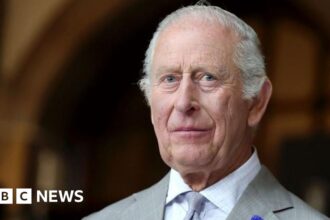In a bold strategic pivot that signals Canada’s renewed ambitions in the global technology landscape, Prime Minister Justin Trudeau unveiled the nation’s first-ever Ministry of Artificial Intelligence this week. The groundbreaking initiative positions Canada to reclaim its once-prominent role in AI development and governance at a critical moment when nations worldwide are racing to establish regulatory frameworks and competitive advantages in this transformative technology.
“Canada was an early pioneer in artificial intelligence research, but we’ve seen our leadership position challenged in recent years,” Trudeau stated during the ministry’s launch ceremony in Ottawa. “This dedicated ministry represents our commitment to not just participate in the AI revolution, but to help shape its direction with Canadian values of inclusivity, ethics, and responsible innovation.”
The creation of this specialized ministry comes amid growing concerns that Canada has fallen behind global competitors despite its historical contributions to AI research. The country that gave birth to deep learning pioneers like Yoshua Bengio, Geoffrey Hinton, and Richard Sutherland has watched as the United States, China, and the European Union have outpaced Canadian investment and policy development in recent years.
According to CO24 Business analysis, Canada’s AI sector attracted approximately $1.2 billion in investment last year—a significant figure, but one that pales in comparison to the $80 billion invested in American AI companies during the same period. This disparity highlights the challenges facing Canadian tech ambitions on the global stage.
The new ministry will be led by Yasir Naqvi, a former Attorney General of Ontario with technology policy experience, who faces the immediate challenge of implementing the Artificial Intelligence and Data Act (AIDA). This landmark legislation, expected to be fully implemented by 2025, establishes regulatory guardrails for high-risk AI systems while creating pathways for innovation and economic growth.
“We’re taking a balanced approach that acknowledges both the tremendous potential of AI and the legitimate concerns about its impact,” Naqvi explained in his first press briefing. “Our goal is to create an environment where Canadian AI companies can thrive globally while ensuring the technology serves our citizens’ interests.”
Industry experts have greeted the announcement with cautious optimism. Dr. Elissa Strome, Executive Director of the Pan-Canadian AI Strategy at CIFAR, told CO24 News: “This dedicated ministry signals that Canada recognizes AI is not just another technological development but a fundamental shift requiring coordinated governance. The question now is whether we can match this institutional commitment with the necessary funding and policy frameworks.”
The ministry’s mandate extends beyond domestic innovation to position Canada as a global leader in AI governance. This includes strengthening partnerships with like-minded nations through forums like the Global Partnership on AI, which Canada co-founded with France in 2020, and developing international standards that reflect Canadian priorities on privacy, fairness, and transparency.
Critics, however, question whether the new ministry can overcome significant structural challenges. A recent report from the Innovation Economy Council identified critical shortcomings in Canada’s AI ecosystem, including brain drain to Silicon Valley, insufficient commercialization of research breakthroughs, and limited access to the computational resources needed for cutting-edge AI development.
“Creating a ministry is symbolically important, but the real test will be whether Canada can create conditions where our AI talent and companies choose to stay and grow here rather than relocating to the U.S.,” said Jim Balsillie, former Research In Motion co-CEO and chair of the Council of Canadian Innovators, in comments to CO24 Canada.
The ministry’s first policy framework, expected next month, will outline specific initiatives to address these challenges, including potential tax incentives for AI startups, research grants, and computing infrastructure investments. Officials have also indicated plans to strengthen Canada’s intellectual property protections to ensure Canadian innovations generate economic benefits domestically.
As nations around the world grapple with both the promise and peril of artificial intelligence, Canada’s institutional response represents a significant recalibration of national priorities. The question remains: can this newly created ministry help Canada recapture its early leadership in a technology that increasingly shapes our economic future and social fabric?
























